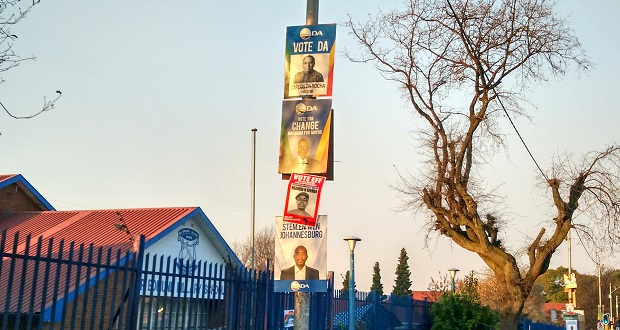The 2016 local government elections saw coalition governments in four out of eight metros in South Africa. This marked a significant change in the South African political landscape. These hung councils functioned differently to metros where a political party got the majority seats.
In 2016, the ANC won a majority of the votes in Buffalo City, Mangaung, and eThekwini. The DA won a majority of the votes in the City of Cape Town. The remaining four metros were run by coalition governments. Coalition governments pose an issue due to the fact that parties have vastly different manifestos and visions. They are forced to work together when passing policies and plans. Oftentimes political parties will “work” together on one issue and then have disagreements over another issue. This means there is very little coherence in councils.
RELATED:
Here’s what you need to know about coalition politics in SA
Coalitions
Political parties in South Africa vary quite a lot ideologically. This poses a problem when they are required to work together in running a metro. The 2021 local government elections may result in some of the biggest metros in the country being under the control of coalitions. This is due to the lack of good governance that many people around the country have experienced from local government.
While coalitions may be an inevitability, not all parties are open to their formation. The Economic Freedom Fighters (EFF) and Democratic Alliance (DA) have said that they are planning for outright wins. They will only discuss the possibility of forming a coalition after the elections. The African National Congress (ANC) is yet to comment on their willingness to form coalition governments.
Coalitions can be formed either formally or informally once elections have taken place. Just as in 2016, it is more than likely that certain metros will be led by coalition governments in 2021.
RELATED:
Separating facts from rumours: what you need to know about coalition negotiations so far
City of Johannesburg
In 2016, the ANC won 121 seats in Johannesburg while the DA won 104 seats. Due to the fact neither party won an outright majority, a coalition was formed. The mayor, Herman Mashaba, who ruled for three years was from the DA. Once Mashaba resigned in 2019, he was replaced by Geoff Makhubo. Makhubo’s passing resulted in Jolidee Matongo being chosen for the position. When Matongo passed, Mpho Moerane took over. All three are affiliated with the ANC.
RELATED:
Who is Jolidee Matongo, Jozi’s new mayor?
The city of Johannesburg has faced many problems in the last five years. These range from service delivery issues to high rates of crime. With the DA mayoral candidate stepping down, ANC effectively seized the reins and took charge of the metro. Since taking control of the City of Johannesburg, both the ANC and DA have faced sizable challenges.
RELATED:
UDM: Coalitions The Way To Go For 2019
City of Tshwane
The DA won 93 seats with the ANC close behind, winning 89 seats. This led to the City of Tshwane, too, being under the control of a coalition government. DA mayoral candidate, Solly Msimanga, served as the mayor of Tshwane for three years. He was succeeded by Stevens Mokgalapa, another DA member. Mokgalapa was replaced by Randall Williams, who is also a member of the DA.
Much like Johannesburg, Tshwane has experienced an array of problems. The metro had four mayors in the span of five years. This has led to internal strife. It magnifies the complexities of a coalition government.
Ekurhuleni
In Ekurhuleni, the ANC secured 109 seats and the DA 77. Mzwandile Masima, a member of the ANC, has been serving as the Mayor of Ekurhuleni since 2016. The DA has played a smaller role in the Ekurhuleni coalition government than in others.
Ekurhuleni has also experienced its fair share of problems with regards to service delivery and crime. Its most prolific incident, however, has been the controversy of its mayor speeding in a police car once the curfew had already been implemented.
Nelson Mandela Bay
The DA seized 57 seats in Nelson Mandela Bay while the ANC managed to get only 50. Athol Trollip of the DA served as mayor for two years following the 2016 elections. Trollip was then replaced by Nqaba Bhanga, also a DA member.
Nelson Mandela Bay has faced extensive difficulties with regards to service delivery. The coalition government has experienced great troubles with regulating the systems in place in the metro.









